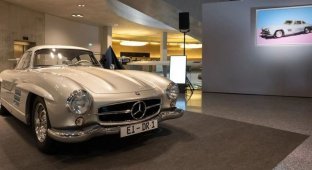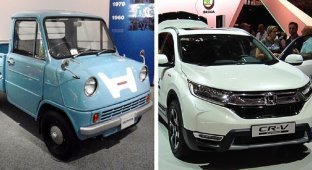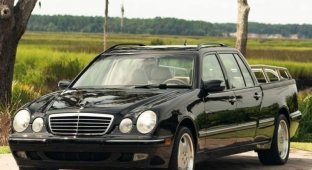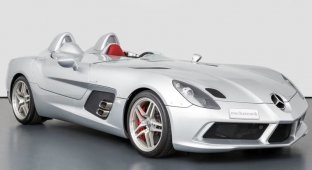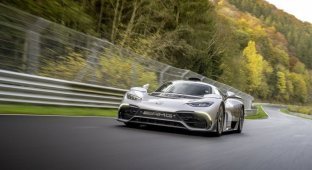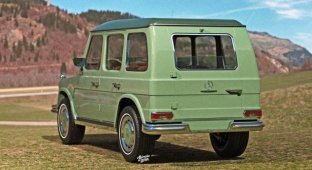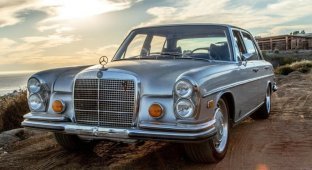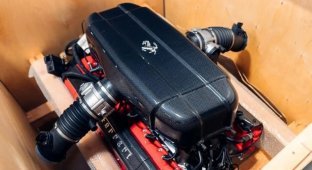Experimental hybrid car Mercedes-Benz W123 Elektro Antrieb (5 photos)
Considered pioneers in the development of hybrid vehicles are Japanese. In the end, it was Toyota that launched into serial production of the first gasoline-electric car - Toyota Prius. However, the development of such vehicles was carried out by many automakers, in including Mercedes. 
The energy crisis of 1979 pushed car companies to creating an alternative to traditional ICE vehicles. First among European automakers in this field was Mercedes. In 1982 year at the Hannover Industrial Fair, the Germans presented a hybrid station wagon Mercedes-Benz W123. The car was built according to the Plug-in scheme hybrid (PHEV) - that is, it was equipped with an internal combustion engine and an electric battery that could be charged from a standard electrical networks.
The engine compartment was quite tight, but there was room for a battery support wheel. 
In the engine compartment, the W123 were compactly arranged: two-cylinder gasoline engine, electric generator, control unit, electric motor 30 kW (41 hp) and automatic 4-speed gearbox gears. The gasoline engine had no mechanical connection with the wheels, and served only to recharge the battery. In other words, hybrid Mercedes-Benz W123 implemented a sequential power circuit installation.
The battery weighed 600 kg 
In the trunk was a battery assembled from 91 iron-nickel battery. They were in a metal tray, equipped with a liquid cooling system. All this economy weighed almost 600 kg and occupied the lion's share of the luggage compartment. How a consequence for battery maintenance had to implement a special retractable mechanism with attached support wheel.
Torque from the electric motor through a modified box gears were transmitted to the rear wheels. Modernization of the "machine" was that instead of a standard torque converter, German engineers installed a friction clutch, which significantly reduced losses transmission power.
The entire useful area of the trunk was occupied by a huge battery 
Nevertheless, the characteristics of the first hybrid Mercedes, frankly, weren't impressed. On one battery charge, the car could cover 100 km way. In the case of using a "gas generator", the distance traveled could be increased by another 50 km. Moved two-ton station wagon extremely slowly, and its maximum speed was limited to 80 km/h 
It's not time for hybrids yet
As you might guess, the serial incarnation of this machine is not light. Nevertheless, German experts have actually proved that hybrid power plant has the right to life. Until the mid-1980s hybrid Mercedes-Benz W123 was tested, after which the project was closed. Developments on it soon came in handy when creating the first electric Mercedes W190 in 1990. But this is completely different story.












